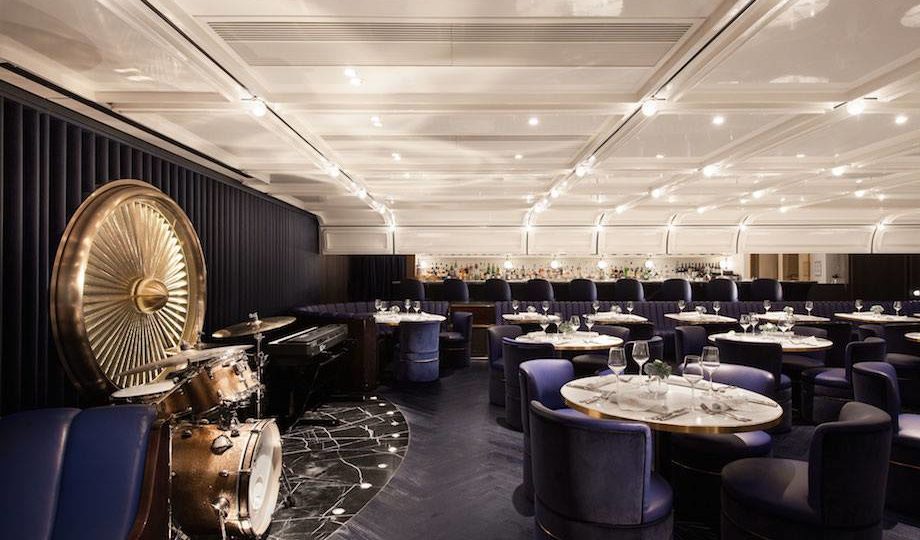Hong Kong has a ton of speakeasy-style joints. A ton. Legend has it that the earliest blueprints of central Hong Kong included plans to provide its citizens with one hidden bar for every cha chaan teng that exists in the city. Then, and only then, would the people be appeased.
Just kidding. There is no such legend. Just too many speakeasies, doing more or less the same thing, within the small space of Hong Kong’s prime real estate.
So, we’re quite aware that there isn’t ever anything “new” to announce when it comes to the city’s speakeasies, but hear us out. Foxglove, which most people know as “the bar hidden behind the boutique umbrella shop,” has rolled out a new menu, and we think it’s pretty great.
If you’re not yet familiar with the name, Foxglove is one of the city’s most well-known hidden bars. It’s decked out like a first-class luxury liner from the 1950s, includes a VIP booth designed like a first-class train carriage, as well as a secret alcove (put plainly: a bar within a bar) called Frank’s Library, which serves personalized drinks for smaller private gatherings. Frank’s Library, incidentally, is known around town as one of the best places to listen to live jazz (and yes, we’ve got a guide for that, too).
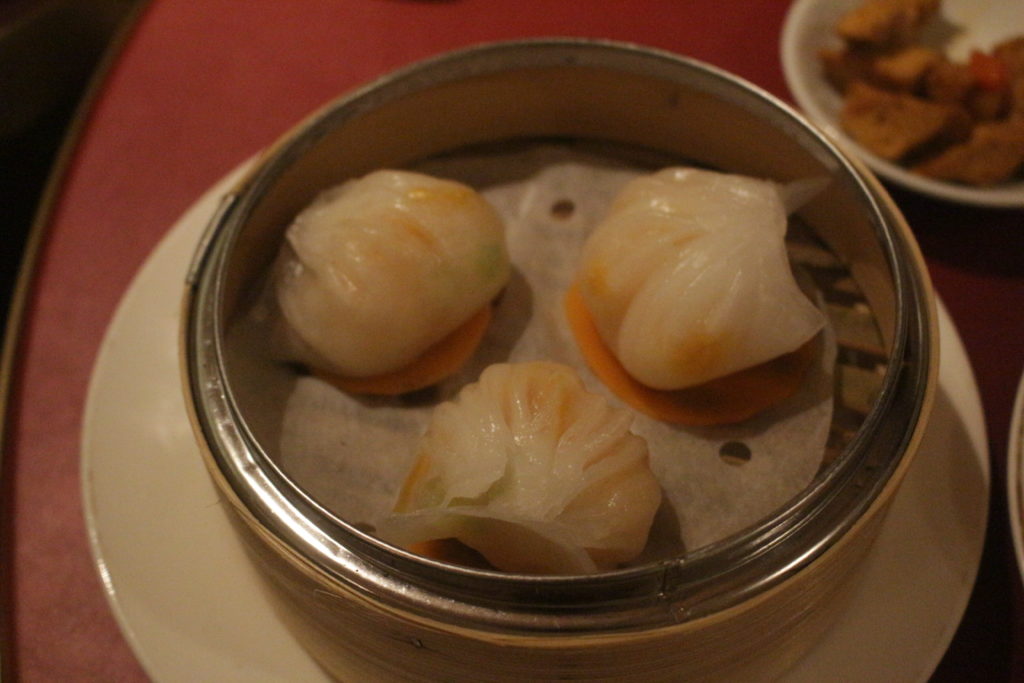
Most of Foxglove’s regulars know it as a bar, and a bar only. Its Prohibition Era-inspired cocktails are where it’s at.
But, with a kitchen now helmed by Tony Hung — former head chef at the Intercontinental Grand Stanford’s Cantonese restaurant, Hoi King Heen — Foxglove has an entirely new food menu. It used to serve French bistro-inspired food, and has shifted the focus to dim sum and Cantonese banquet dishes. With a modern twist, of course.
Cocktails and dim sum: Sounds like a gimmick, and perhaps, even a gamble. Would these flavors actually pair well together? We’re about to find out.
Like any Cantonese meal, it begins with tea. We went for their Gwai red tea (HK$25/person). It was nice and hearty, a taste that’s quite close to an English black tea than most Chinese teas.
And then we began with a dim sum platter (only available as late-night snacks) that comprised of shrimp dumplings, or har gau (HK$66/two pieces), wild mushroom steamed dumplings (HK$46/two pieces), and char siu puffs (HK$68/three pieces).
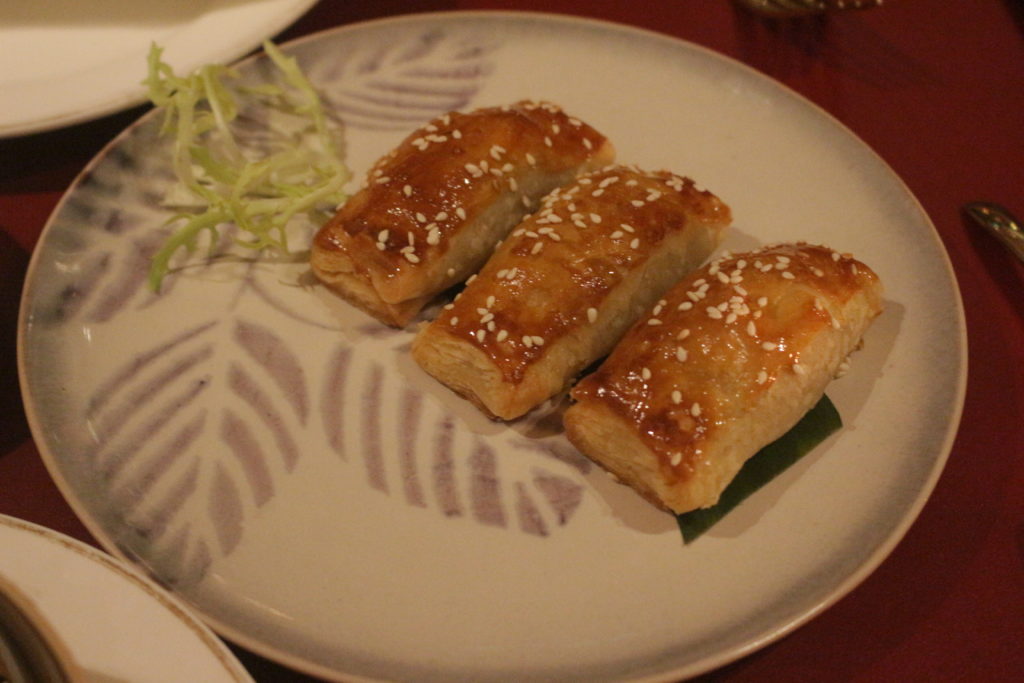
The mushroom dumplings had a nice, earthy taste thanks to its chunky mushroom filling, and the shrimp dumplings had large pieces of fresh shrimp inside, instead of being minced into a pulp the way that some other restaurants might make it.
The char siu puffs, however, were especially good: Char siu pork marinated in a a savory oyster sauce, and encased in a delicate puff pastry case.
We then moved on to the starters, which included a crispy whitebait fish with salted egg yolk (HK$138) — lightly crispy, perfectly salted, and plenty flavorful thanks to the salted egg yolk. Then, we had a “vinegared watermelon skin” with soy sauce (HK$188), which was crunchy, tangy, and refreshing.
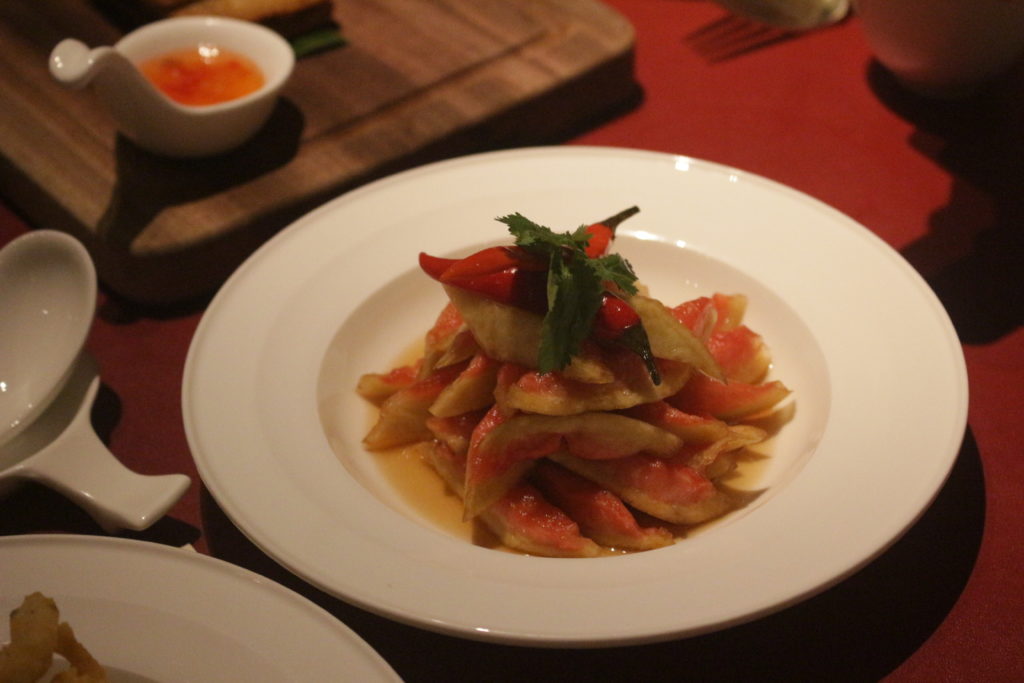
If you’re in the mood for something more substantial and special, then here’s the one to get: a pyramid of small toast sandwiches filled with deep-fried shrimp paste and wagyu beef (HK$118). The slices are crispy without being oily or greasy, and that filling is full of flavor. We immediately wondered if they do deliveries on this dish — it’s astonishingly good.
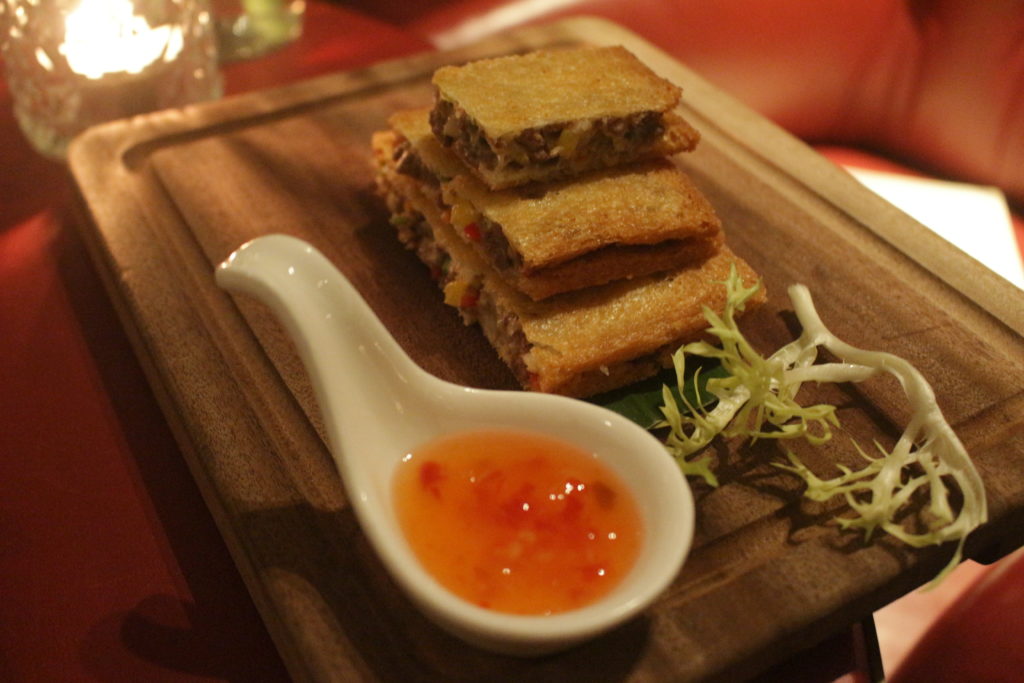
We then washed down that deep-fried goodness (“yeet hei” or “hot air”, for anyone who grew up with Chinese grandparents), with what can only be described as a small goldfish bowl of braised morel mushroom and winter melon broth (HK$128). Hearty, simple, lightly refreshing.
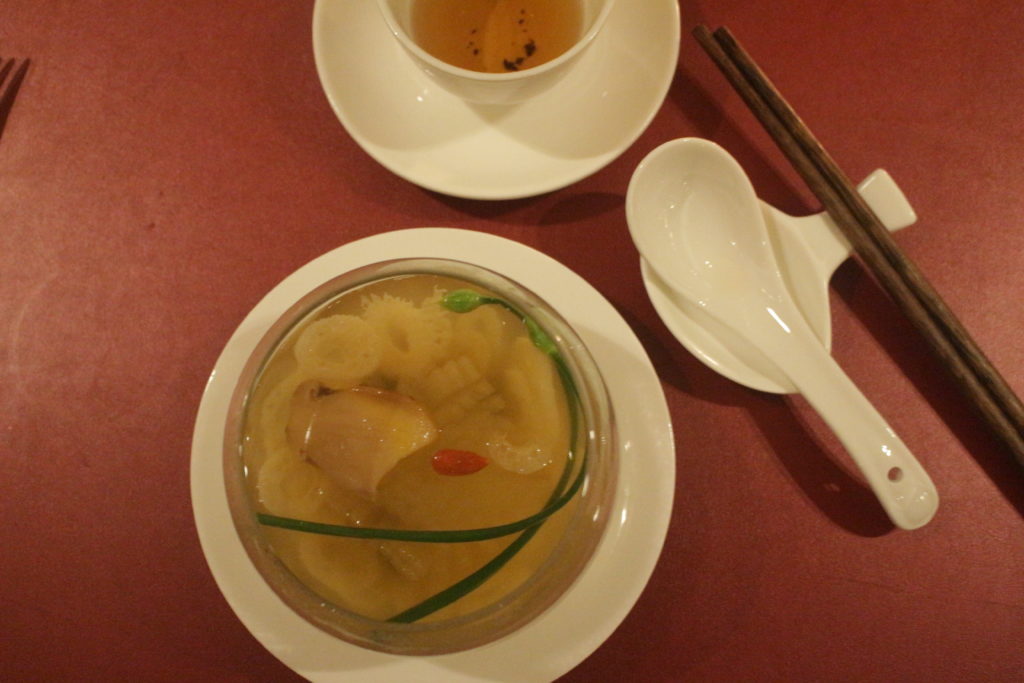
In mains, we tried the kitchen’s prawn made two ways — on one side, with wasabi aioli and the other, sweet and sour sauce (HK$268). The prawns were large and juicy, and deep-fried in a light and crispy batter, and coated in the right amount of sauce. The wasabi prawns came with finely diced sweet mango pieces on top, which we liked — but call us traditionalists. We liked the sweet and sour ones more.
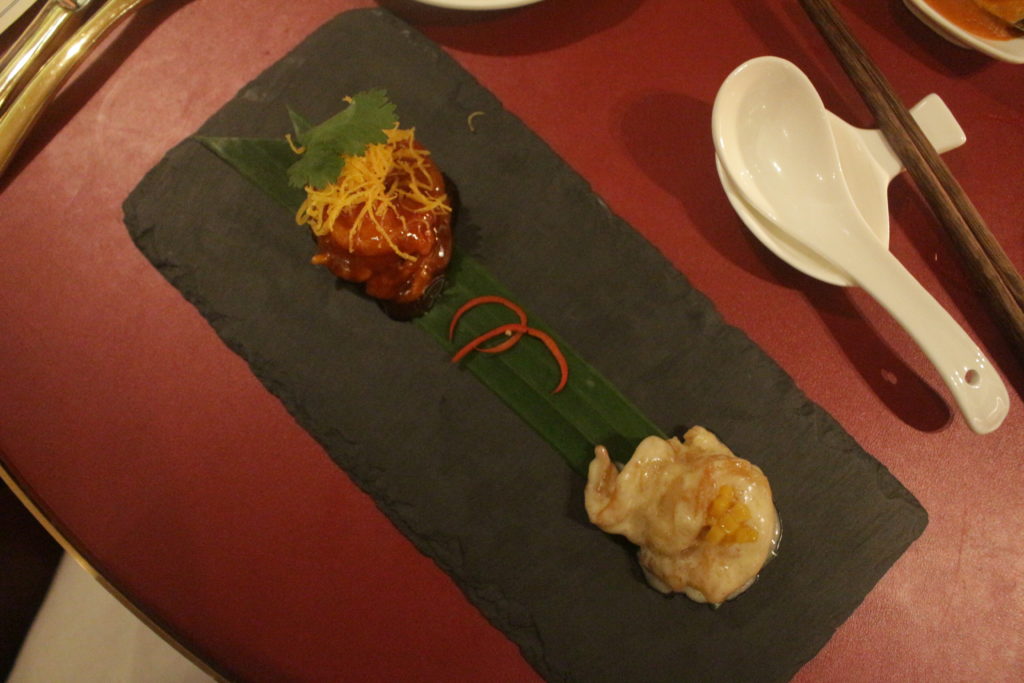
We also tried the baked stuffed crab shell, filled with crab meat, bacon and mushroom (HK$238). It was a bit too creamy for our liking, and we would have much preferred a more conventional Cantonese-style crab that keeps the original flavor and texture of the crustacean intact. A little ginger, spring onion, garlic, and maybe just a bit of butter, maybe. That’s the school of thought we come from, though — some people might like this heavier kind of crab dish to their liking more than we ever would.
Then, we had the spotted garoupa fillet with eggplant and shrimp paste on steamed vegetable egg pudding with sea urchin sauce (HK$268). A tender garoupa fish, served with a warm and juicy eggplant, and a soft and light egg pudding. The sea urchin sauce here also nicely balanced out the slightly heavier fish and eggplant, but the sauce here does congeal quite quickly when cool, and there’s a notable grainy texture to it that non-sea urchin fans might not enjoy.
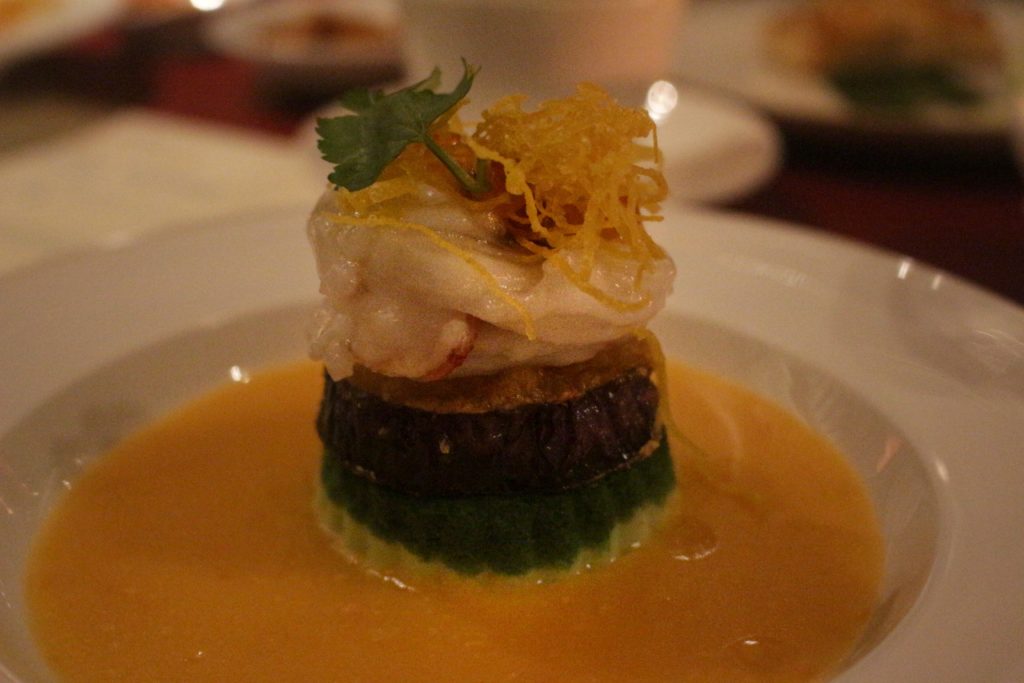
The new menu also has large dishes meant for sharing, like the pineapple sweet and sour Iberico pork (HK$198), and a plate of wild mushroom with short ribs served on a lotus leaf (HK$588).
The sweet and sour pork was perfect — a sweet, sharp sauce coating juicy pork with a slightly crisp exterior. The ribs were tender, juicy, the meat came clean off the bone, and the dish was nicely rounded with a savory marinade.
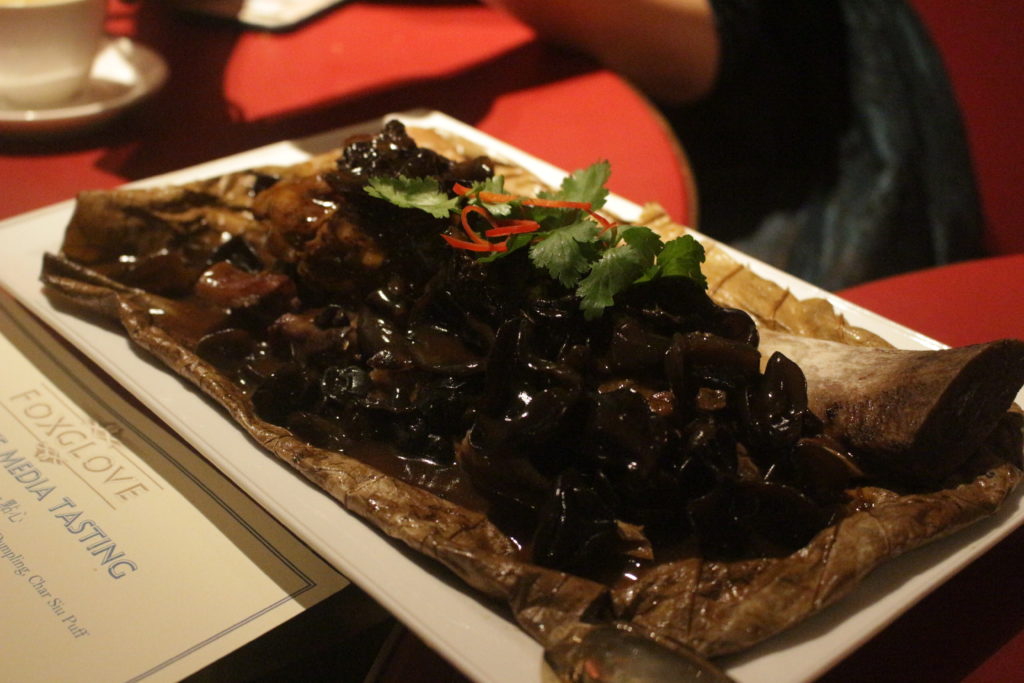
There’s also a pan-fried glutinous rice, with chicken topped with a deep-fried taro puff filled with black glutinous rice (HK$108). The taro puff was excellent, and the combination with the sweet sticky rice worked well with the crispy puff.
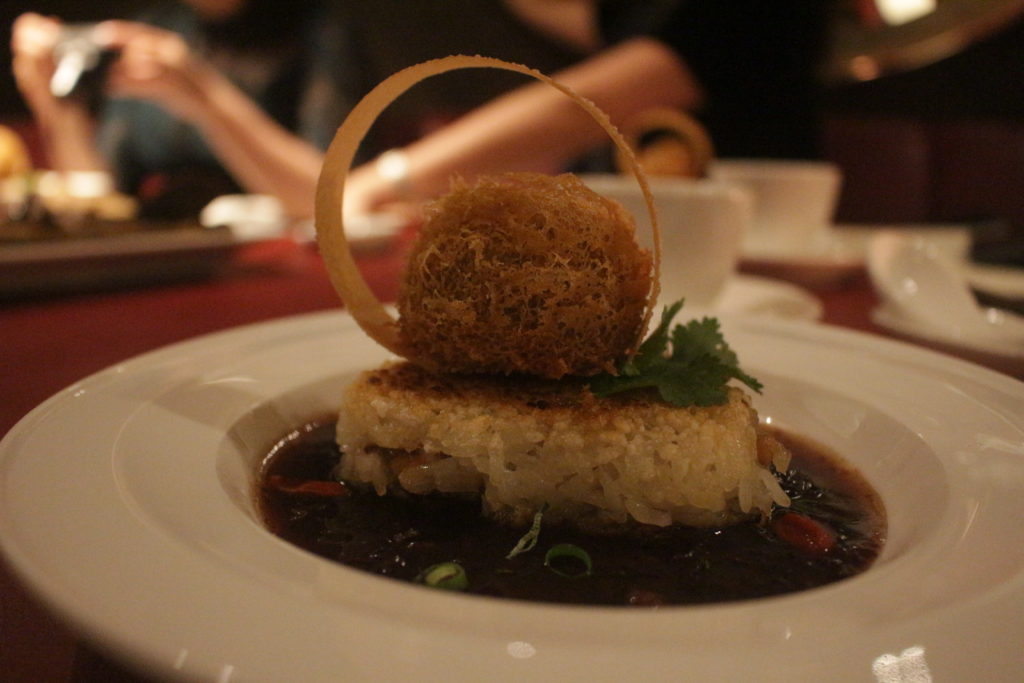
To finish off the meal, we had a deep-fried custard milk roll (HK$48); light, crispy, and not too sweet and rich. It felt like the perfect way to round off a lot of deeply indulgent food.
We also tried one of the bar’s most popular cocktails, The Chet Baker (HK$140), named after the famous American trumpeter and vocalist. Made with coffee-infused Bacardi 8, Antica Formula vermouth, and honey, it’s got a pronounced (though not overwhelming) coffee flavor. It’s got the right amount of sweetness, and a slight smoky flavor that’s lightly (and pleasantly) reminiscent of the classic coffee and the cigarettes combo.
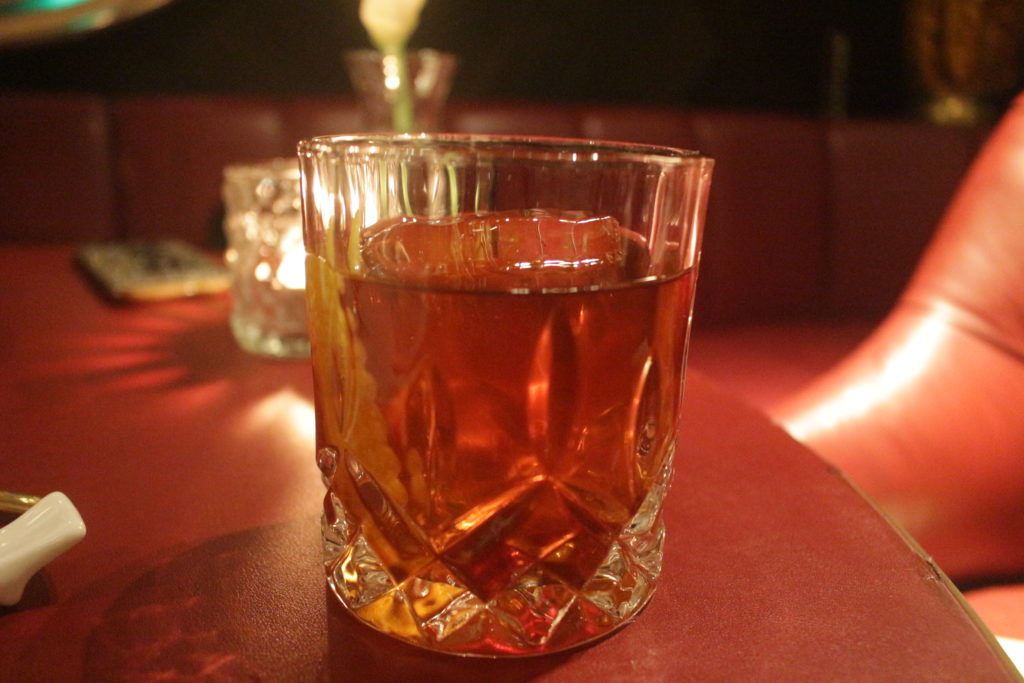
Unsurprisingly, everything here is quite expensive, but for the experience of eating decent Cantonese banquet food in one of the best-looking jazz clubs in the city, the experience could be worth the higher price tags.
There are people who strongly believe that dim sum tastes good wherever you eat it, and that HK$20 is plenty to spend for a plate of good dim sum. If you are that person, it might be hard to convince you to pay up more than HK$50 for just two shrimp dumplings.
We had our misgivings at the start, but we ended up being wowed by what we ate, drank, saw, and heard here.
FIND IT:
Foxglove is at 2/F Printing House, 6 Duddell Street, 18 Ice House Street, Central
Reservations: +852 2116 8949
Mon-Fri, 12pm-3pm and 5pm-1am; Sat-Sun, 5pm-1am
MTR: Central (approx. 5 minute walk)
